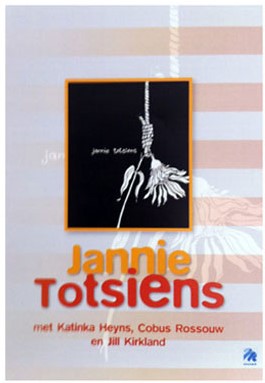 This film is often classified as the first South African cult movie, an insane asylum-set satire that remains an arrestingly bizarre spectacle, outdoing similarly themed films like THE NINTH CONFIGURATION and KING OF HEARTS in provocation and sheer weirdness.
This film is often classified as the first South African cult movie, an insane asylum-set satire that remains an arrestingly bizarre spectacle, outdoing similarly themed films like THE NINTH CONFIGURATION and KING OF HEARTS in provocation and sheer weirdness.
To fully understand this movie requires at least a smidgen of knowledge of South Africa’s apartheid era, which writer-director Jans Rautenbach was satirizing. His previous effort, 1969’s KATRINA, has been called the most controversial film ever made in South Africa due to its questioning of apartheid-instituted racism, and FAREWELL JOHNNY furthers those concerns, albeit in a more symbolic and abstract form.
For whatever reason, FAREWELL JOHNNY (JANNIE TOTSIENS; 1970) is little known outside South Africa, despite its exalted reputation therein—it’s been called the “CITIZEN KANE of South African films,” a claim that may well be accurate.
Johnny, a catatonic college professor, is brought by his parents to a strangely gothic, cat-filled insane asylum. Its inmates include Franz, a military man who thinks he’s still at war; Linda, a grown woman who behaves like a little girl; and Aunty, a witchy middle-aged lady. There’s also a one-armed painter, an elderly judge, a black servant who serves as a receptacle for the inmates’ racism, and an absurdly straight-laced psychiatrist who oversees the asylum, and is as nutty in his own way as his patients.
In this atmosphere of unfettered madness Johnny emerges from his shell somewhat, although when his mother visits he retreats back into catatonia. He starts up a tentative romance with Linda, who identifies him as “the man in the moon.” The other inmates oppose the relationship, not least because one of them, the schizophrenic English gal Liz, is in love with Johnny herself.
Auntie especially disapproves, believing Johnny is “Satan.” Aunty and Franz gang up on Johnny and drop him into the asylum basement, where he’s attacked by cats. He manages to escape, only to confront a much greater horror: the asylum director wants to have Johnny discharged. He, however, wants nothing more than to stay put, as he’s “learned how to love” in the asylum.
During a new year’s eve party the director announces that he’s going to discontinue psychoanalyzing his patients in favor of a more impersonal drug regime. The following morning Liz is found dead, having committed suicide because of her thwarted love for Johnny. A mock trial by Auntie, Franz and the judge is held against Johnny, who’s found guilty of having caused Liz’s death, and given a mighty stiff sentence…
Highly fragmentary and episodic in nature, FAREWELL JOHNNY is anything but predictable. In place of a linear narrative, writer-director Jans Rautenbach lavishes copious amounts of screen time on individual characters and their delusions, which are depicted more often than not via off-screen sound effects.
Each character represents an aspect of South African society in the 1960s (while the titular Johnny allegedly represents Jans Rautenbach), and all are extremely well cast. The dialogue could admittedly have used some work (example: “my love is stronger than your pills!”), but otherwise FAREWELL JOHNNY is an impeccable depiction of insanity both personal and societal.
The proceedings are marked by stark, noirish photography that places great emphasis on light and shadow. Typical are shots through stairway columns and lamps, with various objects occupying, and often obscuring, the foreground.
The art direction is also integral to the overall effect. The bleak, claustrophobic interior where most of the film takes place rivals most movie haunted houses in its overtly gothic architecture, and there’s a stained glass window whose multi-hued illumination enhances the insane atmosphere. For good measure, a wealth of phallic balloons and creepy marionettes are also present, and generously displayed throughout (particularly during the peerlessly creepy opening credits sequence).
It makes sense that a movie about lunatics should itself appear to have been made by crazy people, and that’s definitely the case with FAREWELL JOHNNY.
Vital Statistics
FAREWELL JOHNNY (JANNIE TOTSIENS)
Sewentig
Director/Producer/Screenwriter: Jans Rautenbach
Cinematography: Dave Dunn-Yarker, Koos Roets
Cast: Cobus Rossouw, Katrinka Heyns, Lourens Schultz, Phillip Swanepoel, Jill Kirkland, Jacques Loots, Don Leonard, Hermien Dommisse, Patrick Mynhardt, Berry Botha, Sandra Kotze, Jan Bruyns, Dulcie van den Bergh
